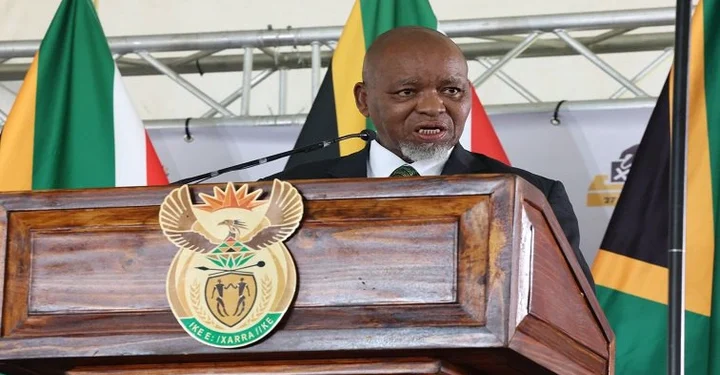Acting President Gwede Mantashe has revealed his interest in visiting the controversial whites-only town of Orania but conceded that his brief tenure makes the trip improbable before President Cyril Ramaphosa’s return. The ANC chairperson’s remarks come weeks after his provocative suggestion that black South Africans should “go build Orania” during his temporary assumption of presidential duties.
With just two days remaining in his caretaker role, Mantashe told journalists: “I would have liked to visit Orania during my acting presidency – not for confrontation, but to observe and understand their model. Unfortunately, time won’t permit it.” His comments reference the Northern Cape enclave established in 1991 as an Afrikaner self-governance project, which remains racially exclusive and politically contentious.
The ANC heavyweight’s earlier quip about black South Africans building their own Orania – made during his first hours as acting president last month – sparked intense debate. Some interpreted it as sardonic commentary on racial separatism, while others saw it as challenging narratives about Orania’s economic success being uniquely tied to Afrikaner identity.
Acting President Gwede Mantashe says he’d like to visit Orania, but the two days remaining in his acting role make it unlikely.
His comment follows a statement he made last month when he took up the position, saying that if he served as president for more than three hours, he… pic.twitter.com/LN4zaDlPv9
— MDN NEWS (@MDNnewss) May 20, 2025
Political analyst Professor Sipho Seepe notes: “Mantashe’s remarks, however brief, tap into South Africa’s unresolved tensions around land, autonomy and racial identity. Even as a symbolic gesture, his expressed interest in visiting Orania forces engagement with uncomfortable questions about social cohesion.”
While the acting president emphasized his approach would be inquisitive rather than combative (“We must engage all corners of this country”), his comments arrive as the ANC faces mounting pressure over transformation policies. The party’s national executive committee member acknowledged Orania represents “part of the national dialogue we need to have,” even as critics condemn the town as an apartheid-era holdout.
Though time constraints appear to have shelved Mantashe’s proposed visit for now, his remarks have reignited scrutiny of Orania’s place in post-apartheid South Africa. The episode underscores how the symbolic power of the presidency – even in an acting capacity – can amplify debates about inclusion and nation-building. As Mantashe prepares to hand back executive authority, the conversation about segregated spaces in a democratic state continues unabated.






















